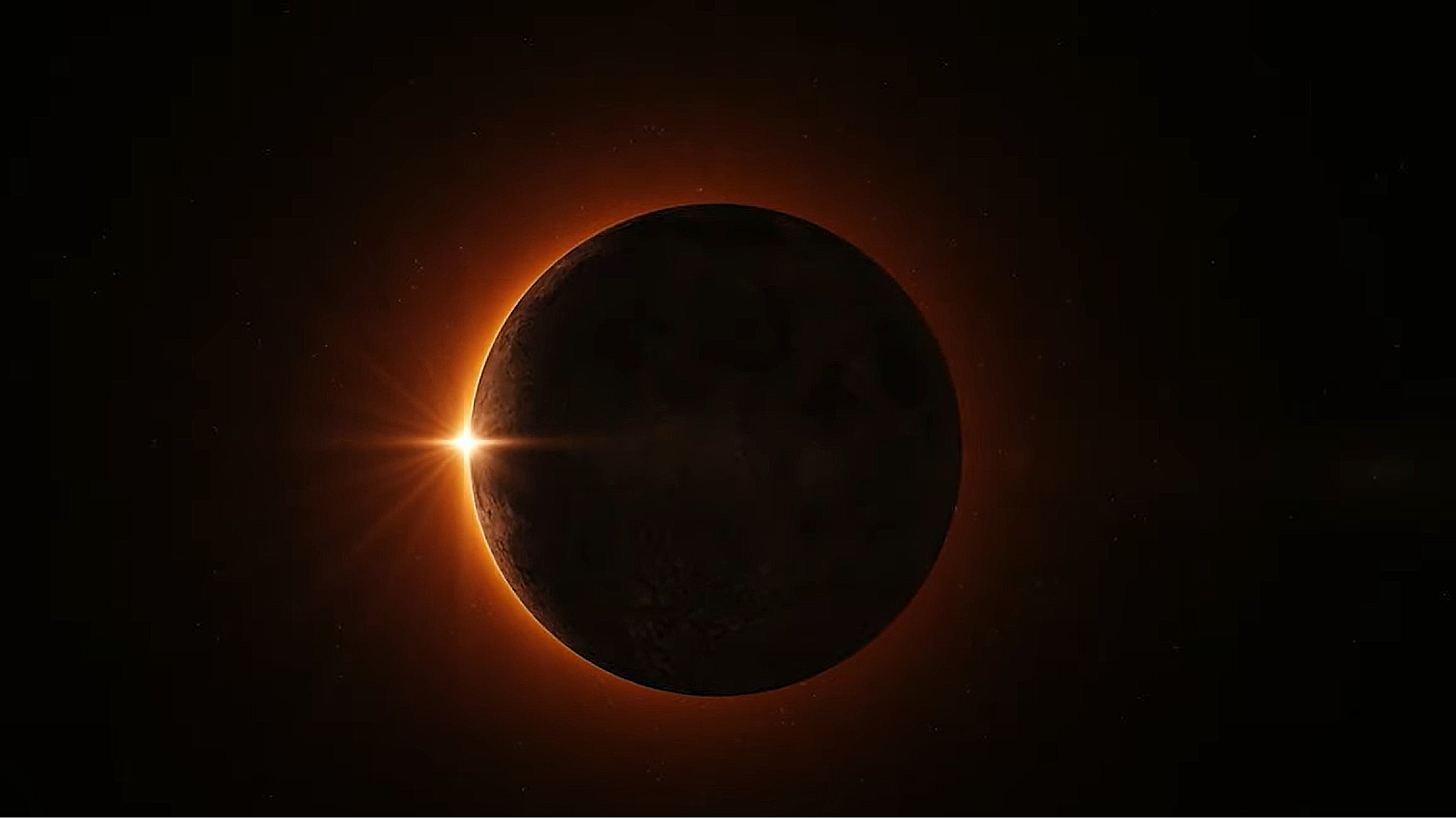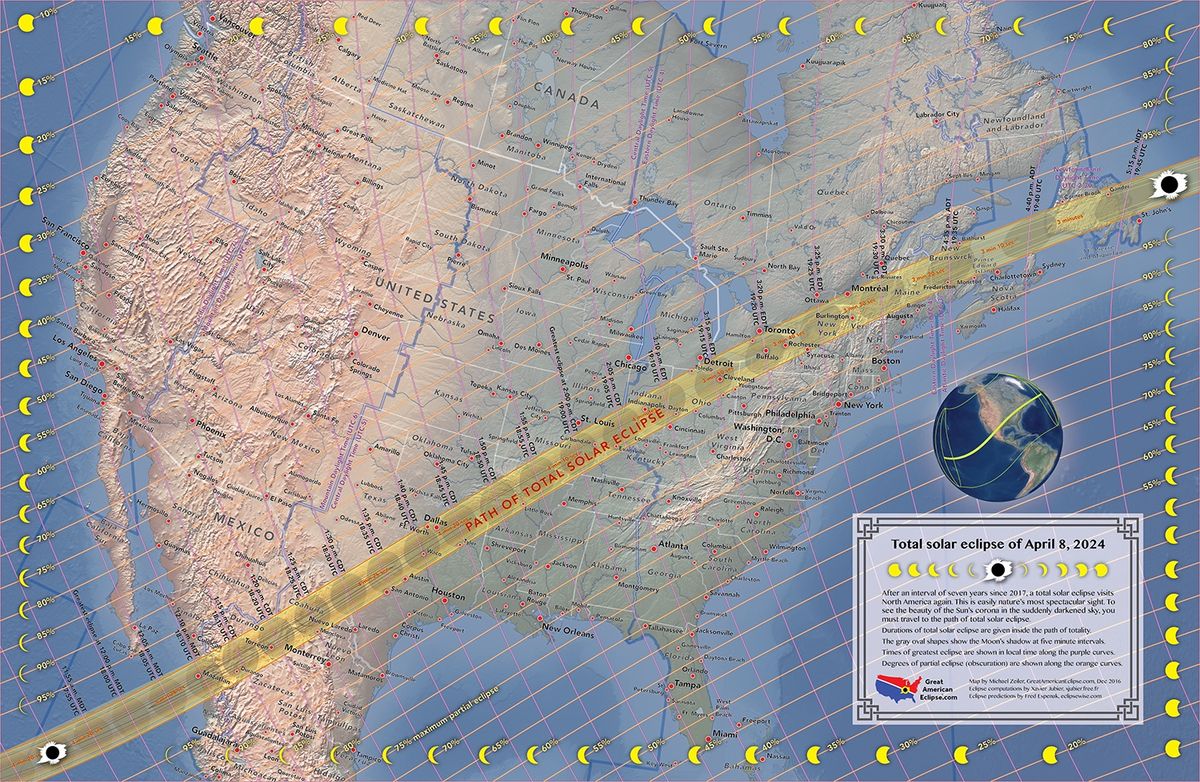
On April 8, North America will experience one of our planet's most incredible celestial spectacles: A total solar eclipse.
In many ways, the April 8 total solar eclipse could be one of the best of the last 100 years. The event will be visible from Mexico, across 15 U.S. states and in parts of northeast Canada. Many areas will see over four minutes of totality — the time in which the sun is completely blocked by the moon from our vantage point on Earth.
To help document the rare event, ABC and National Geographic are airing "Eclipse Across America," a two-hour special beginning at 2 p.m. ET (1800 GMT) on April 8, 2024.
Related: Total solar eclipse 2024: Everything you need to know

"Eclipse Across America" will offer live coverage from Texas, Illinois, the shores of Lake Eerie in Ohio, the Indianapolis Motor Speedway in Indiana, Niagara Falls, Maine, Vermont and Arkansas, where hundreds of couples are set to tie the knot "under nature's total darkness," according to a trailer released by ABC News. The special will offer reporting from ABC News anchors David Muir and Linsey Davis and National Geographic's Mariana van Zeller, among others.
If you live outside of the path of totality, watching live coverage of the total solar eclipse could be the best way for you to experience the event.

Whatever way you choose to watch the eclipse, make sure not to miss it! While Alaska will see a total solar eclipse in 2033, the lower 48 states of the contiguous U.S. will not experience another total solar eclipse until Aug. 23, 2044 when Montana, South Dakota and North Dakota will get to witness another celestial spectacle.
The next year, on Aug. 12, 2045, another total solar eclipse will be visible from California, Nevada, Utah, Colorado, New Mexico, Oklahoma, Kansas, Texas, Arkansas, Missouri, Mississippi, Louisiana, Alabama, Georgia and Florida.
"Eclipse Across America" will broadcast on April 8 at 2 p.m. ET on ABC, ABC News Live, National Geographic Channel, Nat Geo WILD, Disney+, Hulu and network social media platforms.
Remember: If you watch the eclipse in person, you must do so with certified eye protection. Looking at the sun for any period of time without the proper protection can cause permanent eye damage. See our guide for the best solar eclipse glasses to find the right pair for you.







